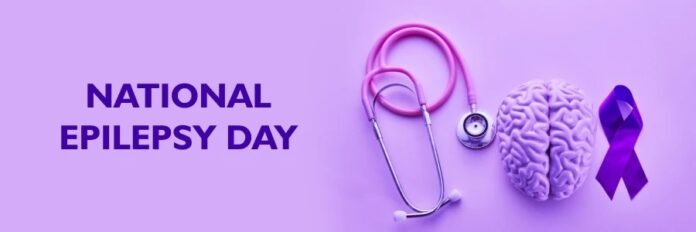
Vaidehi Bhargava
National Epilepsy Day, observed on November 17 in India, raises awareness about epilepsy—a neurological disorder characterized by recurrent, unprovoked seizures. This day is dedicated to educating the public, dispelling myths, and fostering understanding about epilepsy. Epilepsy affects over 10 million people in India, making awareness essential for improving the quality of life for those affected and helping them lead fulfilling lives.
Significance of National Epilepsy Day
Epilepsy remains one of the least understood medical conditions in India due to a lack of awareness and the stigma that surrounds it. Misconceptions about the causes and effects of epilepsy often lead to social discrimination and isolation for people with the condition. National Epilepsy Day aims to combat these issues by providing accurate information and promoting empathy toward those affected. By encouraging open dialogue and public understanding, the day seeks to foster a supportive environment that enables individuals with epilepsy to live without fear of discrimination.
Another significant aspect of National Epilepsy Day is its focus on encouraging early diagnosis and treatment. Epilepsy can often be managed effectively with medication, lifestyle adjustments, and in some cases, surgery. Raising awareness about the symptoms and treatment options encourages individuals experiencing seizures to seek medical help, potentially reducing the risk of severe complications.
Background and Initiatives in India
The inception of National Epilepsy Day in India was led by health organizations like the Indian Epilepsy Society and the Indian Epilepsy Association, which have long advocated for epilepsy awareness and support. These organizations emphasize the importance of proper healthcare infrastructure, training for healthcare providers, and availability of medications. In recent years, campaigns have extended to rural areas, where access to information and treatment remains limited, with the goal of reaching vulnerable populations who may otherwise go untreated or misdiagnosed.
Educational workshops, seminars, and public awareness campaigns are often held on National Epilepsy Day. Healthcare professionals, non-profits, and government organizations collaborate to address myths about epilepsy, provide resources for those living with the disorder, and guide families and caregivers on how to offer support. Many of these efforts also work to explain that epilepsy is not a mental illness, as it is sometimes misperceived, but rather a medical condition that can be managed with appropriate care.
Challenges and Continued Advocacy
National Epilepsy Day also brings attention to the need for improved policies supporting individuals with epilepsy. Many still face barriers in employment, education, and social integration. By highlighting these challenges, National Epilepsy Day advocates for better public policies, increased funding for research, and stronger protections for the rights of people with epilepsy.
In conclusion, National Epilepsy Day plays a crucial role in reshaping societal perspectives on epilepsy, addressing medical needs, and encouraging compassion. Its observance reminds us of the importance of education, inclusion, and advocacy in improving the lives of people affected by epilepsy in India.

